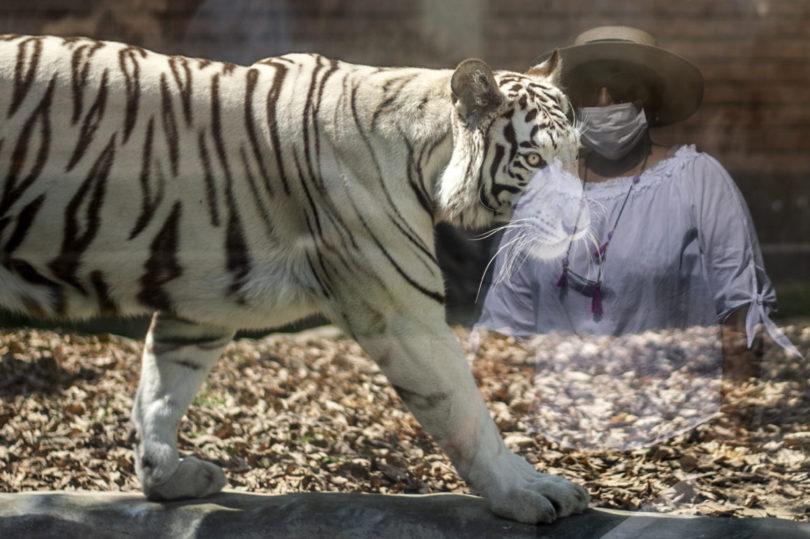Vaccinations for COVID-19 were rolled out to the masses early on during the onset of the pandemic. Current statistics show that 383.1 million doses of the vaccine have already been administered to citizens of the United States, with over 157 million people being fully vaccinated. While convincing individuals to opt for the vaccine was not an easy task, many states were quick to come up with incentives of their own to ensure effective administration.
Vaccines for humans have been long under development, but one cannot say the same for our precious animals. Not only is it important to vaccinate animals at the zoo to ensure their wellbeing, but it is also essential to avoid any further spread of the coronavirus from animals to humans.
While the risk of such disease transmission is low, there have been several reported infections including eight gorillas testing positive for the virus at the San Diego Zoo in early 2021. In fact, the gorillas were exposed to the virus by the asymptomatic zookeeper who was also wearing protective gear whilst feeding the animals. Two tigers at the Virginia Zoo in Norfolk had also tested positive for the coronavirus in April 2021, as well as 15 million minks who were ordered to be killed to prevent any further mutations of the virus through animals in November 2020.
While most zoo officials argue that the animals only contracted the virus from an infected human, there is no evidence suggesting that humans could not catch the virus from animals. Since there is still debate regarding how the coronavirus is actually spread, it is becoming increasingly important to develop a vaccine for the animals as well.
An experimental vaccine for animals was developed by the veterinary pharmaceutical company Zoetis who donated several doses to the Oakland Zoo. The vaccine was carefully administered to the tigers, mountain lions, bears, and ferrets in the zoo in an attempt to protect them from the novel coronavirus. Since these animal species are more susceptible to the virus than others, they were kept as the top priority for the Zoetis vaccine. While none of the animals at the Oakland Zoo had previously contracted the virus, administering the vaccine was still an integral part of the preventative measures taken by the zoo management.
Zoetis’ coronavirus vaccine was initially developed for dogs and cats, and it was further altered to cater to minks. Senior management at Zoetis was happy to inform the press that a Covid-19 vaccine is not yet needed for livestock or pets, which is why their main focus remains steadfast on helping zoo animals that might be exposed to the virus.
For dogs, cats, and other animals, Russia developed their own vaccine known as the Carnivak-Cov which claims to provide about six months of immunity to animal species. As for the Zoetis vaccine, the company aims to donate more than 10,000 doses to up to 70 zoos across the country where it can be administered to a wide range of mammalian species.

